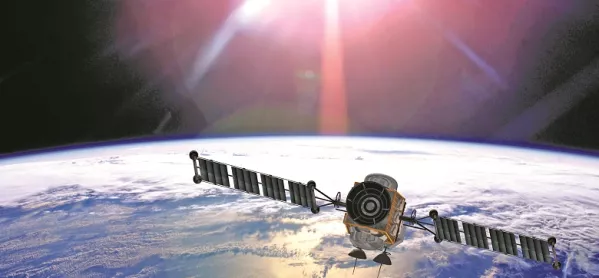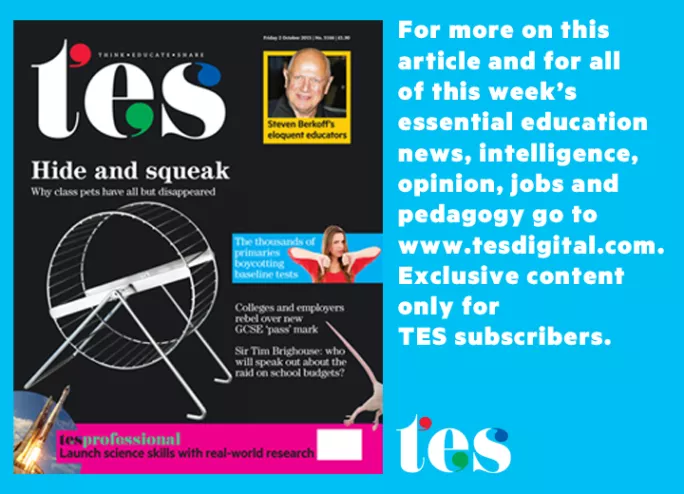The students of Simon Langton Grammar School for Boys are working for Nasa. And if their teacher Becky Parker has her way, your students soon will be, too.
This is because Parker is trying to transform science education in the UK. Writing in the 2 October issue of TES, she explains that one of the major issues stopping young people choosing to study science is the lack of real-world experiments they are trusted to carry out in schools.
“Science education in the UK is missing a crucial element: the excitement and relevance of working on real projects that could change the world,” she writes.
“Of course, students do experiments all the time in schools. However, these rarely replicate real-world projects or tackle ongoing real-world problems. Students don’t get a true taste of modern science.
“And for teachers who love science, it can be demoralising to have to do the same old experiments over and over again - we crave something original. To truly enthuse about our subject, our own interest needs to be piqued and our skills challenged.”
Parker has spent 10 years trying to find a solution and in the newly established Institute for Research In Schools she believes she has found it.
“Under its umbrella, dozens of university-based researchers are collaborating with students and teachers on school-based projects,” she explains. “For example, at the school where I work, space and atmospheric physicist Dr Jonathan Eastwood from Imperial College London is working with students to examine cosmic rays, as part of a project called the Langton Ultimate Cosmic ray Intensity Detector (Lucid).”
By expanding these projects - for which the research institutions often provide the kit needed to the schools involved - Parker believes we can enthuse more and more students to take up science subjects.
“Giving students the opportunity to experience the thrill of discovery, along with the excitement and challenge of not knowing what the answers are, brings their subject to life,” she says. “It also allows young people to contribute their many skills and insights to the scientific community. That instils a high level of confidence - one that’s difficult to achieve by other teaching means.”
To read about the other projects currently running in schools and to find out how to get involved, read this week’s edition of TES on your tablet or phone by downloading the TES Reader app for Android or iOS. Or pick the magazine up at all good newsagents.

